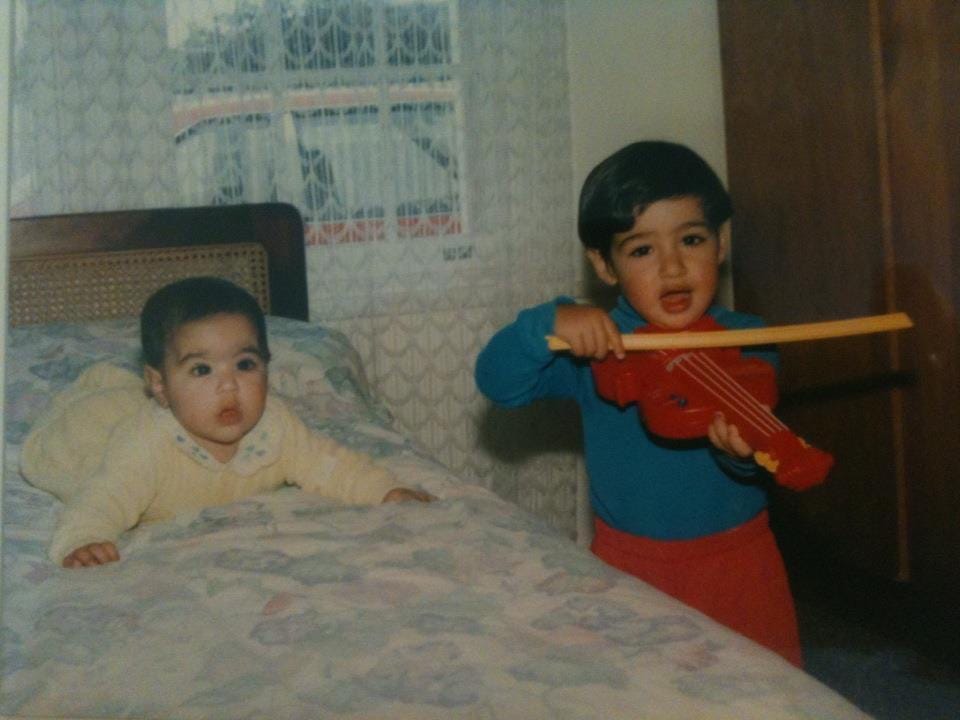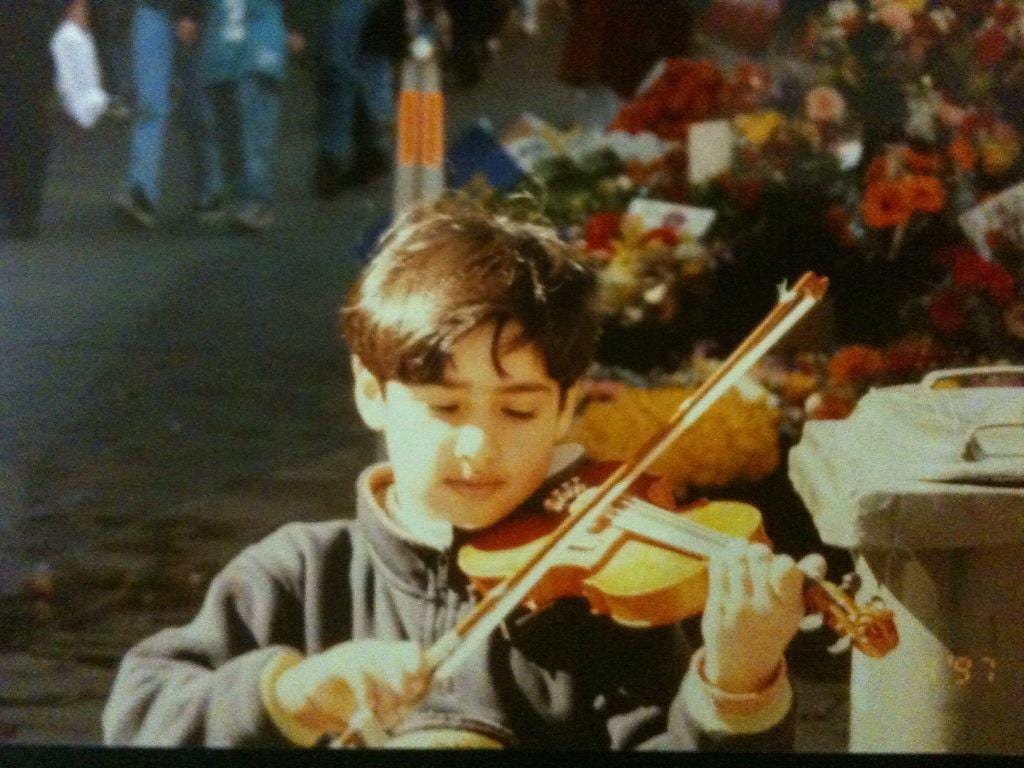The topic of mastery is an interesting one. One might think it premature of me to explore it, but many don’t know about my background before the #futureoflaw became my focus and passion. So, I’ll take the opportunity to share a bit about myself and how it plays into mastery.
(Shout out to Abhijat for inspiring this post with our recent conversation. Thank you for your support, kind words about the impact of the Lab and our friendship based on shared curiosity and passion.)
As early as I can remember, I grew up with one thing always by my side: the violin. Since the age of 4 and a half, I wrestled with this instrument daily. Initially, 15mins a practice session and very quickly up to multiple hours. Over 20 years and thousands of hours, my ability to play the violin accompanied my growth and ability to understand the world. Music is my first love, through it I discovered secrets of life, nature and people.
I lived a very different reality. It was purely creative, artistic, intuitive, inspired and mystical. It was about technique: how the left and right hand coordinate, whilst reading the notes ahead and monitoring the bows position on the string, simultaneously applying expression to the left and right hand to produce dynamic sound. Certainly not a complete list of technical and process-related things to be aware of when playing the violin, but it was only part of the story.
After technique - or perhaps parallel to it - was this capacity of musicianship, the more abstract and expressive process of turning notes that many could play, into an experience that touched hearts. This ability to create music and influence people at their core has everything to do with Mastery: marrying what you know technically and integrating it with a deeper understanding of your self to express art.
And so as I grew in my technical capability, more capacity was given for me to create art, to express and manifest it. There’s a point where any skill becomes so well learnt, it becomes “second nature”. While that skill holds value, you cannot consider the value substantially higher just because you can do it more efficiently (i.e. second nature). Therefore, the second element to mastery becomes more distinguished and evident. What is valued is what “you” bring to the table. The skill by itself has a limited value, it can be bought and learned. When you embody that skill and use it as an expression of yourself you imbue it with massive potential.
In addition to this massive potential you acquire a level of self-awareness and a capacity that cannot be taught in a textbook. It is a visceral and personal journey - but what it allows is wisdom and transfer-ability.
All paths lead to the same end. If you go deep enough, you will see the inherent unity in all paths. If you see the end in the beginning, you’ve attained a level of foresight and wisdom that tempers your actions, your service and contributions, increasing your ability to impact the world.
Mastery in this sense is therefore something that must involve “mind-talk” and “heart -talk”. The science or process of mastery is initially heavily mind-oriented as you point your intellect at a new or novel capability. During this process, you will be encouraged and supported by small wins and milestones, but no force is more powerful than the initial vision and/or dream you had that moved you to start. To go deeper you need to be spurred on by what got your started in the first place: an emotion, a force, a feeling.
Mastery is therefore about embodiment, more than about learning a skill. For me, it’s not about just playing notes off a page, it’s about creating an experience. Sure, you need to coordinate left and right hand, eyes and ears and like clockwork manage these many separate aspects. But the music is essentially embodied and then expressed through you. When people separate their skill from who they are, or intellectualise their capacity like a shopping list of ability, they fail to recognise the 10 fold increase in capacity and impact if they were to combine that ability with their unique self. After all, it is fundamental belief that drive people to do extraordinary things. In this way, a new skill is an opportunity for you to become more of yourself. Skills can be given or bought, passed down and trained, but who you are will always be uniquely you and intrinsically tied to your existence and contribution to this world. It is your superpower.
This is why I believe depth in learning is circular. A craft once mastered, shows within its process transferable qualities that have now been proficiently honed. Qualities that form part of you. Example, a traveler is trusted because they have “been down this road before many times”. The experience of any pursuit, done long enough is in itself generating a capability within us that ultimately becomes “us” and can be pointed like a spear in any other direction.
So for me, music performance and classical violin was what I achieved a level of mastery in. I bring qualities from that journey to my focus in the #futureoflaw because it is part of me. I take the wisdom, the creativity, complexity, lateral thinking, emotion, discipline, passion, performance, ability to touch the hearts and integrate it with what drives me now. This is also why it’s so important that you understand what drives you, that you understand what is of me vs. not of me.
This self-development has relevance to all lawyers, the corporate brand, LegalTech and those that steward the fraternity. There is a great maturing of humans occurring and part of it is recognizing this distinguishing factor between skills and mastery, between “formula-based approaches” and embodiment. Those who can build bridges and make connections will be those who thrive and survive.
If you’re a lawyer, whatever your situation - check in with yourself. Reflect on whether you are embodying what you know, rather than just applying a skill. This depth is what I assume is everyone’s goal - but maybe it’s worth considering it consciously. Go on, be great. Seek mastery.
The future of law is in our hands 🔥
Q.




